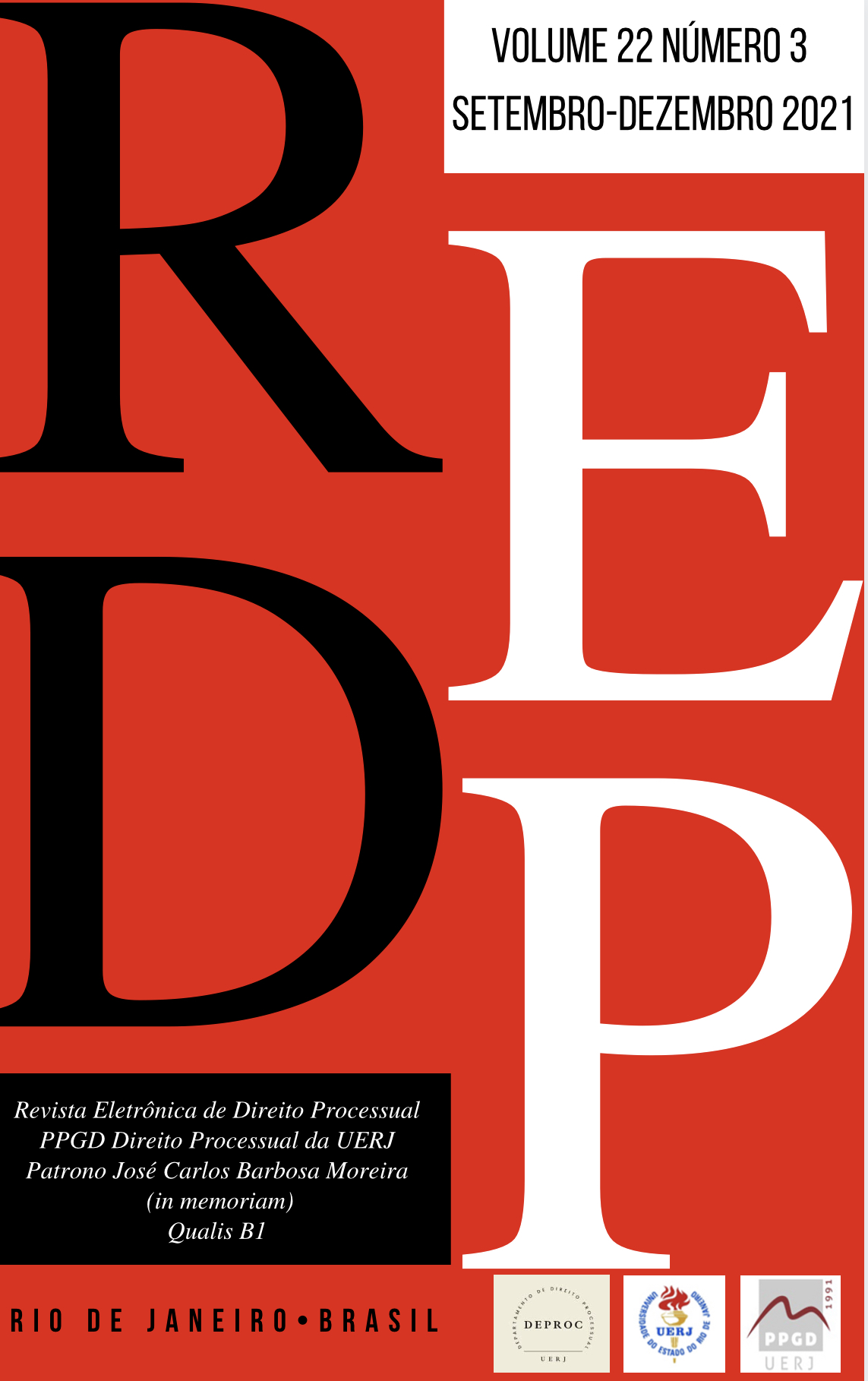CLASS ACTIONS IN QUEBEC: HIGHLIGHTS OF A UNIQUE PROCEDURE
DOI:
https://doi.org/10.12957/redp.2021.62257Palavras-chave:
Ações Coletivas, Quebec, Representatividade Adequada, Acesso à Justiça, Autorização, Ações Coletivas multijurisdicionaisResumo
This article highlights the class action proceeding in Quebec, seeking to expose its main characteristics. The article initially explores the Canadian legal system and provincial legislative peculiarities. In addition to that, the paper explores the three major objectives of class actions: (i) judicial economy; (ii) maximizing access to justice; (iii) deter actual and potential wrongdoers from inflicting damage, especially small amounts of damage on a larger number of people (preventative objective). In sequence, such article specifies how the two-step class action procedure works, starting with the application for authorization, which is a preliminary request and a unique step in the province of Quebec that is meant to filter frivolous demands.Only once the authorization is granted may the case be heard collectively on the merits. The second step of the two-step procedure is an originating application that must be filed if the class action is authorized. Furthermore, this study deals with many relevant matters regarding the class actions in Canada (particularly Quebec), such as: (i) Right of Appeal; (ii) Res Judicata Effect – on absent members; (iii) Monetary Distributions and Types of Collective Recovery; (iv) Class Action Financing; (v) Possible Settlements; (vi) Multi-Provincial Class Proceedings and National Classes.
Downloads
Publicado
Como Citar
Edição
Seção
Licença
Todos os artigos publicados na Revista Eletrônica de Direito Processual (REDP) (Departamento de Direito Processual, Universidade do Estado do Rio de Janeiro, Brasil) são licenciados por meio de uma Licença Creative Commons - Atribuição 4.0 Internacional (CC BY 4.0).
Os autores retêm os direitos autorais de seu artigo e concordam em licenciar seu trabalho com a licença CC BY 4.0, aceitando assim os termos e condições específicos desta licença disponíveis no seguinte website: https://creativecommons.org/licenses/by/4.0/legalcode.
- Os autores concedem à REDP o direito de primeira publicação, de se identificar como publicadora original do trabalho e concedem à revista uma licença de direitos não exclusivos para utilizar o trabalho das seguintes formas: Reproduzir, vender e distribuir cópias eletrônicas ou impressas do manuscrito como um todo, de partes específicas do manuscrito e de suas traduções para qualquer idioma;
- O uso do artigo por terceiros é livre, contanto que a integridade da publicação seja mantida e seus autores originais, periódico de primeira publicação e detalhes de citação sejam identificados.
Dentro dos termos da licença, os autores podem entrar em acordos contratuais adicionais separados para a distribuição não exclusiva da versão publicada do trabalho na revista.
Copyright and Licensing
All articles published in the Procedural Law Electronic Review (REDP) (Department of Procedural Law, State University of Rio de Janeiro, Brazil) are licensed under a Creative Commons License - Attribution 4.0 International (CC BY 4.0).
- Authors retain copyright to their article and agree to license their work under the CC BY 4.0 license, thereby accepting the specific terms and conditions of this license available at the following website: https://creativecommons.org/licenses/by/4.0/ legal code.
- Authors grant REDP the right of first publication, to identify itself as the original publisher of the work, and grant the journal a non-exclusive license to use the work in the following ways: Reproduce, sell and distribute electronic or printed copies of the manuscript as a whole, of specific parts of the manuscript and its translations into any language;
- Use of the article by third parties is free, as long as the integrity of the publication is maintained and its original authors, first publication journal, and citation details are identified.
Within the terms of the license, authors may enter into separate additional contractual agreements for the non-exclusive distribution of the published version of the work in the journal.





